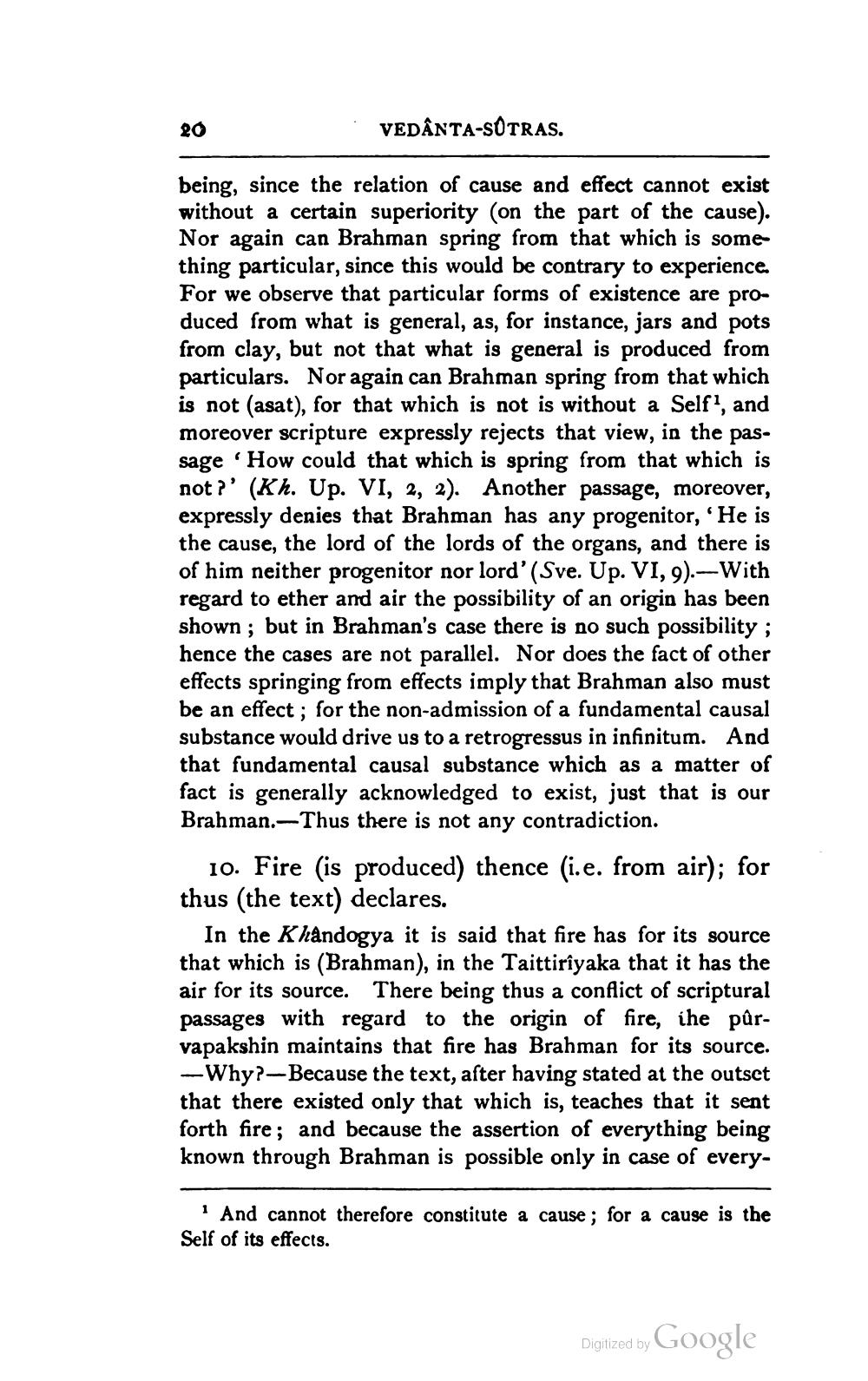________________
20
VEDÂNTA-SOTRAS.
being, since the relation of cause and effect cannot exist without a certain superiority (on the part of the cause). Nor again can Brahman spring from that which is something particular, since this would be contrary to experience. For we observe that particular forms of existence are produced from what is general, as, for instance, jars and pots from clay, but not that what is general is produced from particulars. Nor again can Brahman spring from that which is not (asat), for that which is not is without a Self, and moreover scripture expressly rejects that view, in the passage 'How could that which is spring from that which is not ?' (Kh. Up. VI, 2, 2). Another passage, moreover, expressly denies that Brahman has any progenitor, 'He is the cause, the lord of the lords of the organs, and there is of him neither progenitor nor lord' (Sve. Up. VI, 9).-With regard to ether and air the possibility of an origin has been shown; but in Brahman's case there is no such possibility ; hence the cases are not parallel. Nor does the fact of other effects springing from effects imply that Brahman also must be an effect ; for the non-admission of a fundamental causal substance would drive us to a retrogressus in infinitum. And that fundamental causal substance which as a matter of fact is generally acknowledged to exist, just that is our Brahman.-Thus there is not any contradiction.
10. Fire (is produced) thence (i.e. from air); for thus (the text) declares.
In the Khandogya it is said that fire has for its source that which is (Brahman), in the Taittiriyaka that it has the air for its source. There being thus a conflict of scriptural passages with regard to the origin of fire, ihe pûrvapakshin maintains that fire has Brahman for its source.
-Why?-Because the text, after having stated at the outset that there existed only that which is, teaches that it sent forth fire; and because the assertion of everything being known through Brahman is possible only in case of every
And cannot therefore constitute a cause ; for a cause is the Self of its effects.
Digitized by
Digilzed by Google




